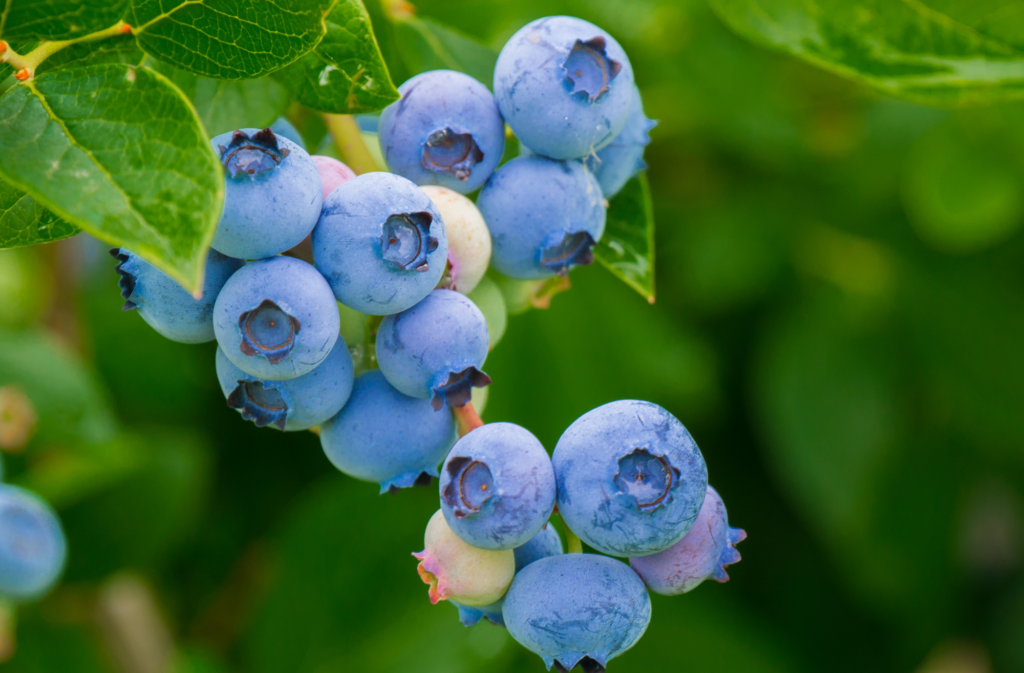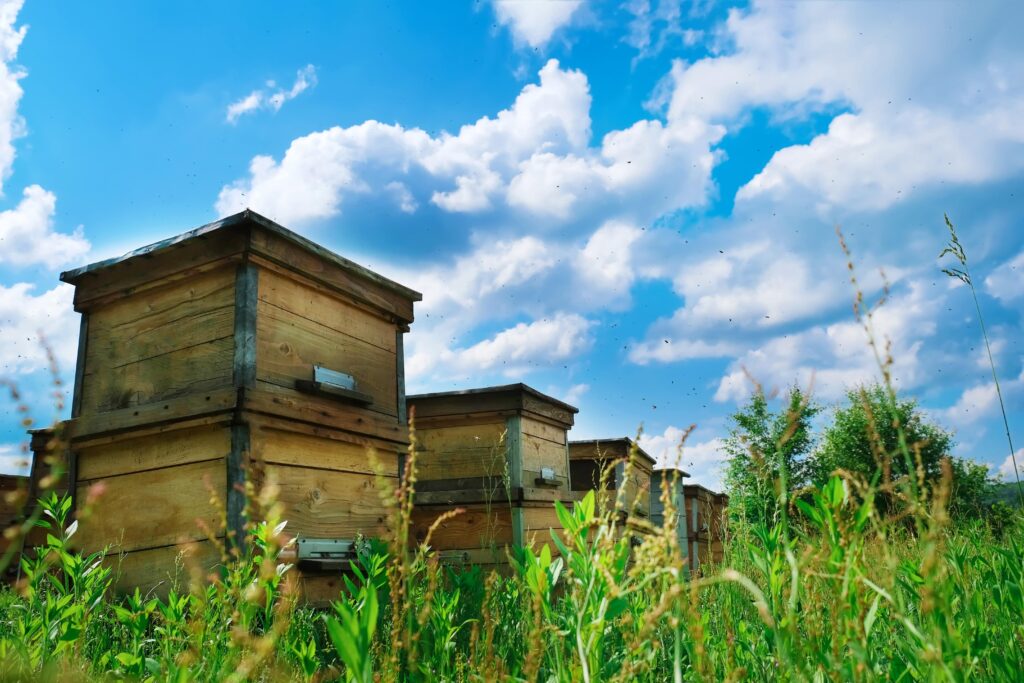Bumblebees ensure bumper British blueberry crop
29th August 2023
The wettest July since 2009 was a major concern for UK berry growers – blueberries are particularly sensitive to overly wet conditions. However, agronomists are delighted with how the crop has grown and stood up to the unseasonably wet weather – and they say that this is in large part thanks to bumblebees.

Agronomists are delighted with how this year’s blueberry crop has grown and stood up to the unseasonably wet weather.
Buzz pollination
Blueberry flowers prefer a special pollination mechanism known as ‘buzz pollination’ and bumblebees are particularly skilled at this technique, which involves the bee vibrating the flower to dislodge the pollen.
This method ensures efficient pollen transfer and fertilisation of the flower, resulting in higher fruit set and better fruit quality.
Bumblebee-pollinated blueberry plants also result in more tiny seeds inside the berry. This tends to produce a bigger, firmer fruit – which can be an indicator of higher fruit quality and also greater weather resilience.
Bumblebee pollination schemes
This year, British blueberry growers have employed particularly robust bumblebee pollination schemes – with one major grower bringing in over 3,000 bumblebee hives. This has resulted in a crop which is better able to stand up to the unseasonal summer weather.

Fruit growers are introducing honeybee hives to aid pollination.
Each week, blueberry growers do a weekly crop walk to ensure there are enough bumblebees across their farms – before making plans to bring in further hives if needed. Growers also collaborate with local beekeepers to bring honeybee hives onto their farms to boost pollination.
Many growers are also enhancing the number of other pollinators on their farms. They are planting wildflowers adjacent to crops to encourage a diverse range of pollinators which help biodiversity as well as the blueberries.
The careful work of UK growers and help from the bees has ensured a very good British blueberry harvest this year.
Cooler summer brings sweeter fruit
Agronomists are reporting sweeter and larger blueberries with better varieties and the cool summer weather having a role in this. Cooler weather has seen the fruit ripen slowly which typically allows more time for sugars to accumulate to create that sweet taste.
Blueberries have quickly become a staple in British shopping baskets, gaining substantial popularity in the past two decades. UK production levels have risen significantly as more shoppers become aware of the strong health benefits of blueberries and are keen to reduce their food miles by buying home-grown fresh produce.

Blueberries have become a British staple thanks to their ‘superfood’ status.
Often called a superfood, blueberries contain antioxidants which boost heart health and decrease risk factors for heart disease. With their proven health benefits, they are a perfect snack food for children going back to school.
The berry industry in Britain is big business, with the year-round retail sales of berries standing at an all-time high of £1.7 billion. The berry industry is estimated to contribute £3.18 billion to the British economy in the next five years.
Nick Marston, chairman of British Berry Growers, the industry body that represents 95 per cent of berries supplied to UK supermarkets said: “British berry growers have demonstrated remarkable innovation in using pollination plans to create a robust blueberry crop this season that has withstood the unseasonable July weather. They have managed to grow a good and sweet tasting crop. The contribution of bumblebees to our farms has not only strengthened this year’s harvest but also highlighted the connection between bountiful crops and a thriving ecosystem.”
“We’re thrilled to witness the success of this year’s blueberry crop driven by skilled growers across the country. Only a few decades ago, at this time of year most blueberries on supermarket shelves were imported, that’s no longer the case. This underscores the need to support British growers for the work they do to boost the British economy and the nation’s health.
“As consumers gain awareness of the varied health benefits of blueberries, we are highlighting the importance of getting fresh berries in your diet through our Nature’s Vitamin campaign. Taking supplements cannot replace the goodness you get from eating fresh, home-grown food.”
